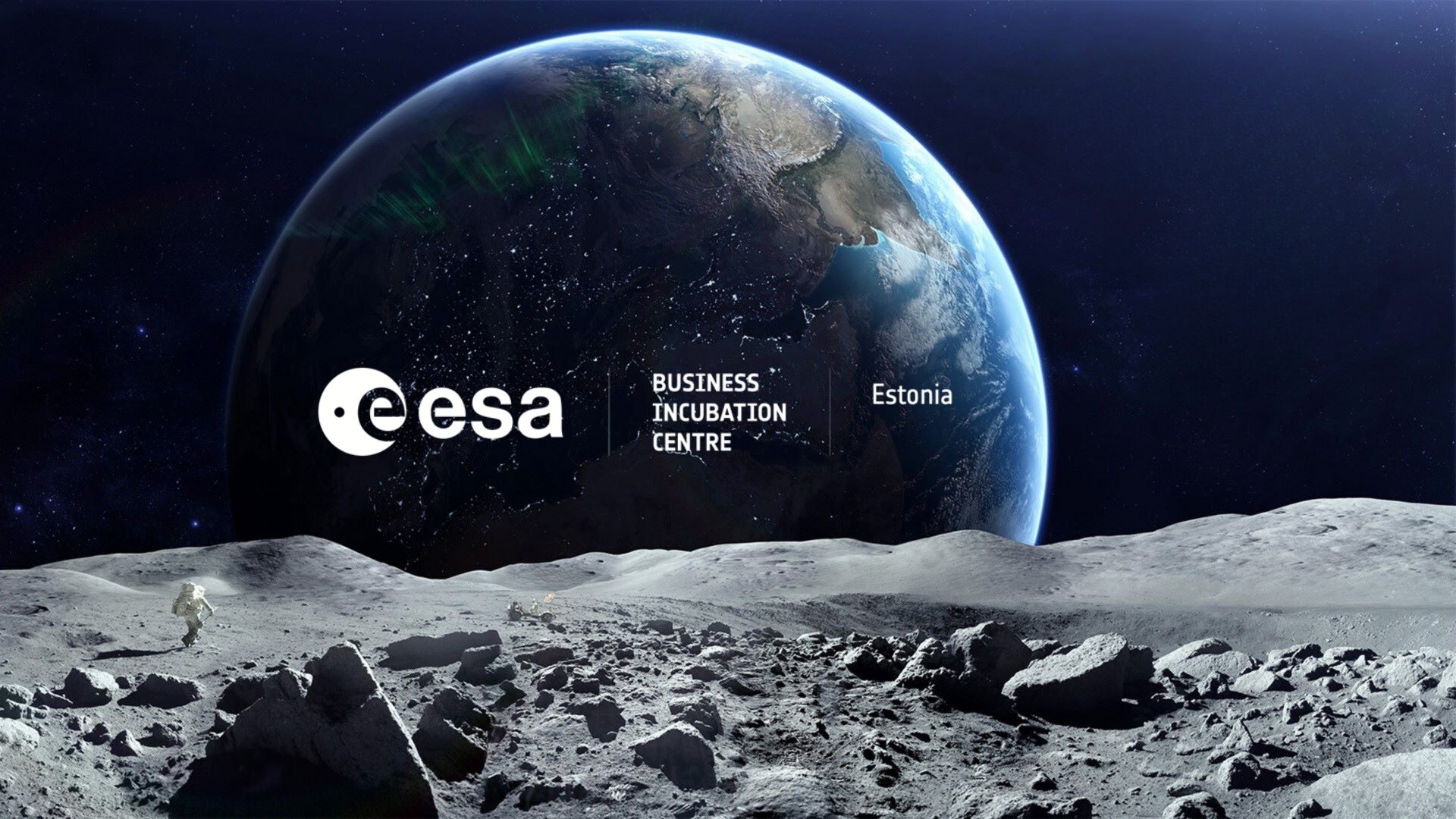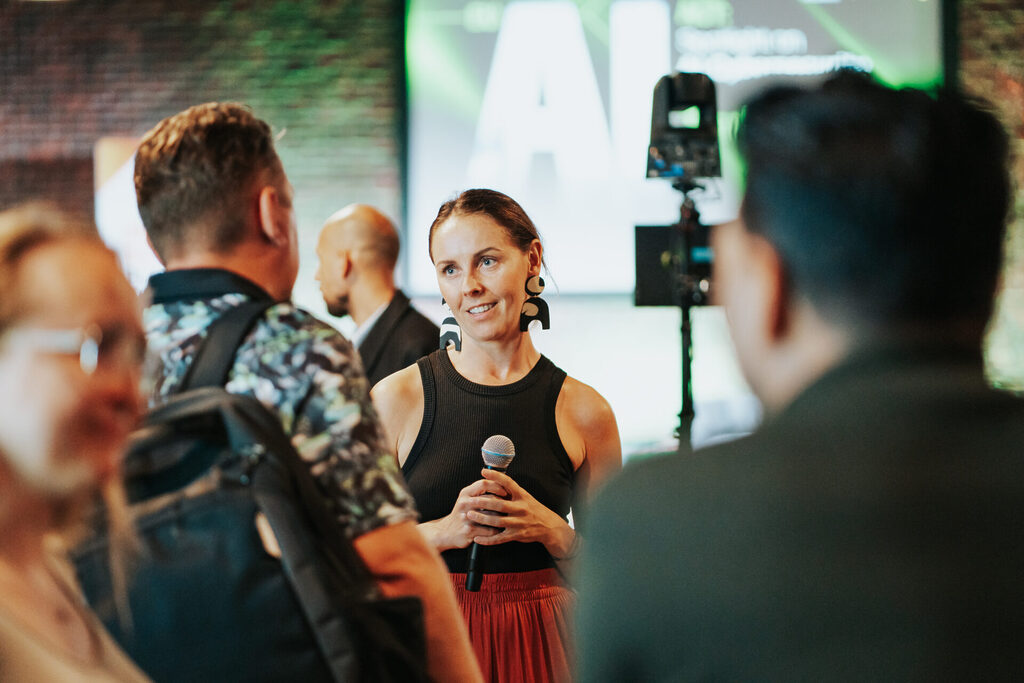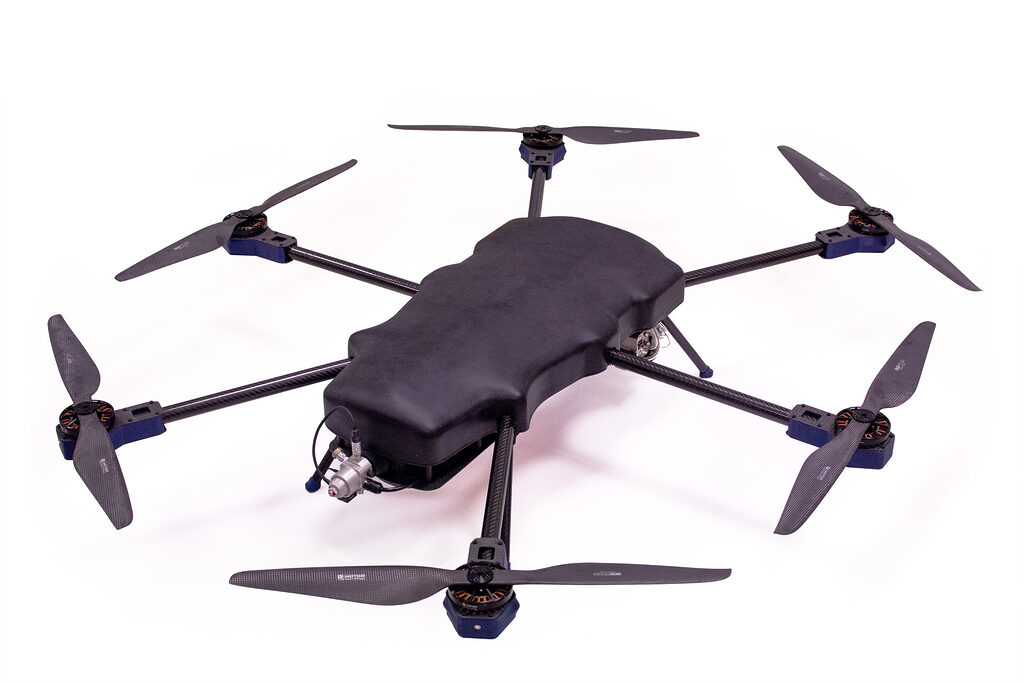07.04.2025
The Space Agency’s Business Incubator is looking for fresh technology and space-related business ideas

Although space technology might seem intimidating to an outsider, Estonian companies have opportunities to develop businesses in the sector and achieve success. Until May 8th, applications are open for the European Space Agency’s business incubator (ESA BIC) in Estonia, where you can receive development support for bold ideas and make valuable international connections with other European space companies.
Even though we don’t think about space on a daily basis, many everyday products that we now take for granted originated from space technology development since the 1960s—such as wireless headphones, scratch-resistant glass, home water purification systems, memory foam, solar panels, freeze-dried food, vacuum packaging, and more. Space technology is also a part of our daily lives through dozens of satellites that enable GPS and navigation apps, internet connections, weather forecasts, bank transfers, phone calls, and TV and radio connections.
Space technology is a key driver in the tech industry and business innovation, making its development and support beneficial for any economy. Although Estonia is not historically a spacefaring nation, Estonia became a full member of European Space Agency (ESA) 10 years ago. Two years later launch ESA Business Incubation Centre (ESA BIC) Estonia was launched. Since then, the accelerator is open to startups with innovative ideas for using space technology or developing applications for new products and services in non-space environments.
ESA BIC Estonia supports five space startups each year
ESA BIC Estonia is part of the world’s largest space incubator network including 32 space business incubators in 90 locations across Europe. So far, the network has supported the creation and development of more than 1,800 space tech startups.
Twice a year, five companies are selected into the Estonian accelerator program. They receive up to €60,000 in non-equity funding for product development and IP protection, as well as mentoring and business development support.
Over the past 20 years, 32 companies have participated in the ESA BIC Estonia incubator, now employing over 200 people. The incubator has helped launch companies such as Crystalspace, whose Moon cameras were sent to the Moon on a NASA mission; Spaceit, with a cloud-based satellite management system; KappaZetta, which provides remote sensing solutions for precision agriculture; Hepta Airborne, offering data-based electricity line monitoring systems, and many more. Last year, Right Step, which focuses on bones in zero gravity, became the first Estonian company selected for the SciSpace CORA Parabolic Flight program. Altogether, graduates of the program have raised €58 million in funding, and one surpassed €1 million in annual revenue last year.
ESA BIC Estonia’s consortium includes Tartu Science Park, Tehnopol, the cities of Tallinn and Tartu, the University of Tartu, and TalTech.
Most important—international connections
Kristiina Libe, Deep-Tech Project Manager at Tehnopol, notes that development cycles for space technology ventures—like other deep tech fields—are long, making it harder to attract investors and making support mechanisms more vital.
“While ESA BIC’s €60,000 support may not seem large given the capital intensity of the field, the real benefit of participating in the incubator is the connections – participants gain access to the ESA BIC alumni network,” she explains. Program participation also serves as a quality label, helping Estonian space startups find global partners.

“Taking part of ESA BIC is the first step to validate the idea and then move into follow-up programs at ESA and EUSPA,” encourages Sven Lilla, Space Sector Lead at Tartu Science Park.
According to Jaanus Vahesalu, Head of Tallinn’s Entrepreneurship Center, joining ESA’s acceleration program opens up numerous opportunities for Estonian companies, including access to top-tier scientific and technological expertise and supply chains, as well as raising product value by applying space technologies.
“While city residents may not feel it directly, space technologies are key to making cities smarter, cleaner, and more efficient. Satellite-based data enables better urban planning, optimized mobility, real-time environmental monitoring, safer living environments, and more sustainable energy management,” adds Vahesalu.
Participants only have praise for ESA BIC Estonia
Marek Alliksoo, CEO of SkyCorp Technologies, says ESA BIC was the only useful incubator over the years that allowed them to develop their IP portfolio and file their first patent.
“We didn’t even see ourselves as a space tech company at first, but we became the first incubatee to start direct negotiations with ESA, win a contract, and with their ongoing support, develop our business areas, networks, and know-how,” he shares.

Strong international collaboration
Given Estonia’s small space sector, local experts are few and often very busy. On the other hand, Estonian space startups look far beyond the country—mainly to the U.S.—making mentors with international experience and global networks crucial for support.
One of the program’s external mentors is aviation pilot Shareef Al Romaithi, who has collaborated with NASA in the field of spaceflight. He sees great potential for cooperation between Estonia and the United Arab Emirates (UAE).
“Estonia is known for its expertise in digital solutions, cybersecurity, and AI, which are fields that are becoming increasingly relevant in space technology. The UAE, on the other hand, is investing heavily in its space program, with major initiatives like the Emirates Mars Mission and lunar rover.,” says Romaithi.
One great example of collaboration is Madari Space, a UAE-based space company that has partnered with Tehnopol, Estonia’s leading science and business park. Their goal is to support Estonian deep-tech startups scale internationally, including in the space sector. This kind of partnership can be a model for future cooperation.
What trends are driving the development of the space sector?
According to Romaithi, several trends are shaping the future of space tech. First, AI and automation are playing an increasingly crucial role, improving mission efficiency and real-time decision-making in space operations. AI-driven satellite data analysis is revolutionizing remote sensing applications, including Earth observation.
Another major development, Romaithi says, is in advanced communications. Space-based 5G networks, quantum encryption, and laser communications are making data transfer faster and more secure, which is essential for deep space missions and global connectivity. Furthermore, reusable launch vehicles have been a game-changer, significantly lowering the cost of access to space. “Companies such as SpaceX have already demonstrated the potential, and we’re seeing more players enter the market with similar technologies. As a result of these advancements, we are witnessing a rise in the number of small satellites, including CubeSats and NanoSats, allowing for more cost-effective and flexible solutions for Earth observation, IoT applications, and even interplanetary missions,” Romaithi adds.
A newer but rapidly growing trend is data centers in space. With the exponential growth of data, the ability to process and store information in orbit reduces dependence on Earth-based infrastructure while improving data security and latency. This could be a huge shift in how we manage global data in the future.
“It is important to realize that the next big leap in space exploration and commercialization will not come from just one country, I will be achieved through global collaboration.” Romaithi comments. “Estonia and the UAE both have ambitious visions for the future, and by working together, they can develop cutting-edge solutions that have a real impact. Whether it’s AI-driven space applications, cybersecurity, or next-generation satellite technologies, there is massive potential for both nations to grow together in this sector.”
Read more about ESA BIC Estonian accelerator: esabic.ee

















